While it is a well-known fact that solar is a sustainable and cost-effective energy source, it can be especially impactful for disadvantaged communities. Residents in lower to middle-income neighborhoods pay a disproportionate amount of their income towards energy costs, are exposed to lower air quality, and have limited economic opportunities. However, beyond the benefits of solar for residents, it can also provide a unique opportunity for investors to generate profit and positively impact the environment and the communities that need it the most. The HBCU Clean Energy Initiative offers seven reasons why funding solar projects is not only the right thing to do but also a smart investment.
- Government Incentives and Growing Demand: Both federal and state government agencies provide tax credits and other incentives to encourage the development of renewable energy sources. To date, 24 states have enacted net-zero carbon and greenhouse gas (GHG) electricity production goals and expect carbon-neutral solar to help them realize these objectives. Many policymakers require a certain amount of this investment to be targeted toward disadvantaged communities, providing an increased incentive for funders.
- High Potential for Return on Investment: Investing in solar energy projects can generate high returns, especially in disadvantaged communities with higher electricity rates. The lack of access to reliable and affordable energy in these areas can lead to higher demand for solar energy, which can drive up the potential for returns.
- Increase Clean Transportation Options: Some low-income housing developers are adding electric vehicle (EV) charging stations to upcoming projects, increasing equitable access to renewable transportation modes. And some chargers can be completely powered by solar energy. National Grid, an electric utility in New York, manages projects and community engagement for the EV Charging Station “Make Ready” program. This incentive is available for property owners and managers of multi-unit dwellings. It can cover up to 100% of EV charger infrastructure costs which can be a win-win for community residents and funders.
- Address Energy Inequality: Residents in LMI neighborhoods often lack access to reliable and affordable energy, limiting their economic development and quality of life. Investing in solar energy projects in these communities can help address this inequality, providing access to clean and affordable energy and helping improve residents’ lives.
- Positive Social Impact: Investing in solar energy projects in LMI communities can spur economic development, create jobs, boost the local economy, and improve public health by reducing dependence on fossil fuels.
- Environmentally Responsible: Solar energy is a clean and renewable energy source that can help reduce greenhouse gas emissions and slow the pace of climate change. Investing in solar energy projects can help protect the environment and promote sustainable development.
- Increased Access: Until recently, solar has not been attainable for many lower-income residents. In fact, nearly half of U.S. households — totaling more than 154 million people — cannot host rooftop solar because they lack suitable space, rent their homes, or live in multi-tenant buildings. Millions more simply can’t afford to spend tens of thousands of dollars on the upfront costs for installation. Community solar projects funded by investors can change that by allowing multiple participants to own or lease shares in a mid-sized solar facility and receive credits that lower their monthly utility bills based on how much power the facility delivers to the grid.
Summary: In conclusion, both developers and underserved communities alike can benefit greatly from increasing solar funding opportunities. As interest in projects that address environmental, social, and governance (ESG) aspects of investment continues to grow, integrating renewable energy into LMI residential communities can provide significant sustainability benefits to developers, municipalities, and end users.
To find out more about how the HBCU Clean Energy Initiative accelerates climate justice, click here.
To read more HBCU Clean Energy Initiative blogs, click here.

